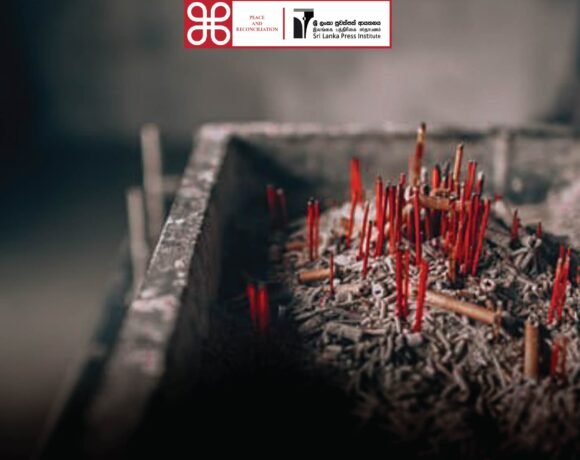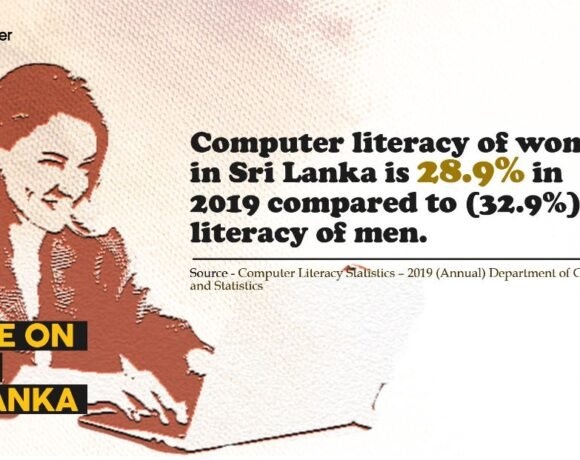
Stories Woven around Women
I.K. Prabha
Women are less likely to actively use social media than men. They use social media such as Facebook, Instagram and YouTube, but can identify how anxious they are to reveal their identities. Against this backdrop, especially if a woman in Sri Lankan society makes a mistake, we can see how news is shared on social media, demeaning the entire female population. I would like to point out that Muslim women are a major target in a lot of hate speech content made taregting religious backgrounds. Based on current events, there is a tendency to create hate speech targeting women on the internet and outside the media. It is deplorable that the women targeted for such incidents are physically and emotionally abused and also have their relatives and friends around them be subjected to various forms of harassment. (https://cutt.ly/MjxiGtn)
By collecting data from around 1200 journalists globally, the International Federation of Journalists (IFJ) and the United Nations Educational, Scientific and Cultural Organization (UNESCO) discovered that journalists are exposed to a 20% possibility for being targets of hate speech and various abuses on and off the Internet. About 73% of those who had been surveyed said they were emotionally traumatized by hate speech on the Internet. Such incidents against women can be seen as a violation not only of women’s rights but also of the human bonds and self-beliefs that exist between them. (https://cutt.ly/jjxi8hu)
Article 2 of the Universal Declaration of Human Rights: “All persons are entitled to all the rights and freedoms mentioned in this Declaration, irrespective of race, ethnicity, colour, gender, language, religion, political affiliation or any other social status, nationality, property or birth. Each individual owns the rights of any person, regardless of the political, legal or international status of the country to which he or she belongs, regardless of the status of the country as independent, custodial, non-independent, etc.”
Article 5 of the Convention on the Elimination of All Forms of Discrimination against Women, adopted by the United Nations in 1979, also states, “Eliminate Misconceptions Against Women”. The 43rd session of the United Nations Conference on the Rights of Women was held on 25th February 2020 and it was pointed out that women’s rights should not be a political alternative. The fundamental rights enshrined in Chapter 3 of the Constitution of the Democratic Socialist Republic of Sri Lanka also state that women should have the same rights as other citizens of the country and the equality of the law.
The Center for Policy Alternatives also provides a series of guidelines for responsible social media usage to encourage social media users to use social media in a good manner, ensuring the right to access information society with digital literacy with positive and negative discourses on social media from time to time in the country through ‘Social Media Declaration, Colombo – 2019’.
For example, there have been several instances of news against women on social media and mainstream media:
- Circulation of news and hateful allegations that the second wave of the Covid virus was caused by women in the Minuwangoda garment factory and that women caused to get others sick
- Personal Life of Women Artists (14 other artists including Chathurika Peiris contracted with Covid)
- Misleading news and hate speech directed at nurse Pushpa Ramyani Zoysa circulate on social media
- Various hate content targeted at transgender people , such as ‘Bhumi Harendran’ and ‘Yara Allen’
- Various news posted on Sri Lankan social media regarding a 15-year-old Japanese girl and her Sri Lankan boyfriend
- ‘Corona woman who escaped from IDH hospital caught behind a house in Hindurangala’ – Divaina 2020.11.23
- ’42 traders quarantined due to Corona infected woman who ran a tea shop at Kiribathgoda market’ – Divaina 2020.12.07
- ‘Father of two children remanded for raping a dumb woman until 18th’ – Mawbima 06.11.2010
- Appointment of two female officers as Commissioners by the Sri Lanka Air Force
IMAGE – 1 IMAGE – 2 IMAGE – 3 IMAGE – 4
Based on the above news, you can also identify various news items published on Facebook and YouTube on social media and the way in which news is created using photos and videos of a women in order to gain popularity, money and quickly socialize an opinion. It can be seen that inappropriate news about women are shared more on social media and traditional media than when a woman makes a significant achievement. Accordingly, a special study should be made of how women are positioned in media usage.
IMAGE – 5
Women should raise their voices whenever harassment happens. They also need to know how to take legal action against hate speech on social media. And the injustices that happened can be eliminated by focusing more on women socializing their ideas on behalf of women and creating a robust social opinion against it. There are several organizations that speak out for women nationally and internationally:
- Sero Un Women
- UN Women Asia and the Pacific
- International Convention for the Elimination of All Forms of Discrimination against Women – CEDAW
- Women and Child Affairs Division – Establishment of Child and Women Development Units
- Capacity-Building for National and Civil Society / Organizations Promoting of the Right to Reproductive Health and Response to Violence Based on Gender – UNFPA
- Women’s Aid Institutions
- Women’s Movement for Freedom
- ‘Abhimani’ Women and Child Development Foundation
- Progressive Women’s Union
- Women for rights
- ‘Aluth Piyapath’ Women’s Organization
There is an urgent need to creatively build positive stories around such feminist images in order to enhance public relations and the soft power of Sri Lankan society among foreign countries, avoiding the spread of gossip, empty words or obscene stories aimed at the women. The government should pay timely attention to the spread of malpractices, hate speech and fake news targeting gender and the government should take the lead in generating immediate solutions for this. To launch a strong awareness campaign on gender equality and ‘hashtag’ campaigns to combat hate speech, violence and misconceptions, training workshops should be organized to educate women and men on women’s rights and monitor their progress. Use your pen as a weapon to speak up for all women who are being abused through newspapers, television and social media to ensure the safety of the future of the women!








